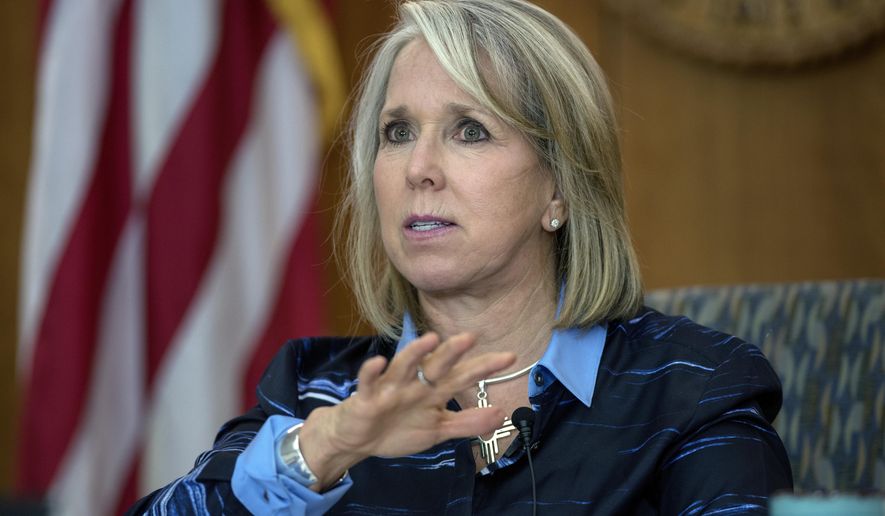SANTA FE, N.M. (AP) — New Mexico is easing its self-quarantine requirements for interstate travelers in advance of the Labor Day holiday and allowing hotels to accept more guests if they undergo certification for coronavirus precautions.
Democratic Gov. Michelle Lujan Grisham announced she will waive quarantine restrictions on travelers as they arrive from low-risk states by land or air starting Friday. Hotel occupancy limits are being raised from 50% to 75% when a certification for safe practices is completed.
And individuals who can show documentation of a valid negative COVID-19 test taken within the 72 hours before or after entry into the state are exempt from the 14-day quarantine requirement.
The state’s self-quarantine requirement still will apply to people returning or arriving from “high-risk” states based on coronavirus positivity rates and and per-capita infections, including nearby Texas, Arizona, Utah and Oklahoma.
States are considered low risk if they have a 5% positivity rate or lower, or a new case rate below 80 per million residents - each calculated over a 7-day rolling average.
A list of high-risk states will be posted on the state’s coronavirus information website.
As of Thursday, low-risk states included Colorado, Connecticut, Maine, Massachusetts, Michigan, New Jersey, New Hampshire, New York Oregon, Pennsylvania, Vermont, Wyoming and Washington.
All out-of-state travelers still are encouraged by health authorities to self-isolate and undergo testing for COVID-19 within five to seven days of arrival in the state.
In a news release, the governor said the state must weigh safety precautions along with economic considerations.
“We have to maintain the necessary precautions to keep the people of New Mexico safe while identifying areas where we can amend restrictions to address our state’s economic crisis,” Lujan Grisham said in the statement. Without a coherent federal plan, we are on our own, and it is up to New Mexicans to keep making the right decisions every day.”
The following states and Puerto Rico were listed as high-risk: Alabama, Alaska, Arizona, Arkansas, California, Delaware, Florida, Georgia, Hawaii, Idaho, Illinois, Indiana, Iowa, Kansas, Kentucky, Louisiana, Maryland, Minnesota, Mississippi, Missouri, Montana, Nebraska, Nevada, North Carolina, North Dakota, Ohio, Oklahoma, Rhode Island, South Carolina, South Dakota, Tennessee, Texas, Utah, Virginia, West Virginia and Wisconsin.
State health officials continue to discourage all nonessential travel, describing it as “an extraordinary risk to yourself, your family, your community and your state.”




Please read our comment policy before commenting.